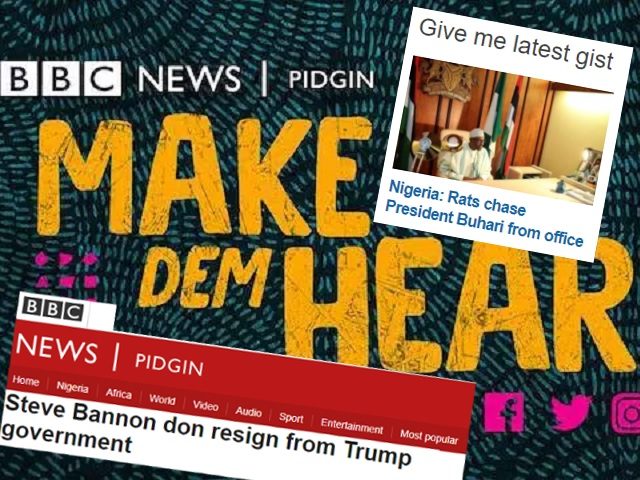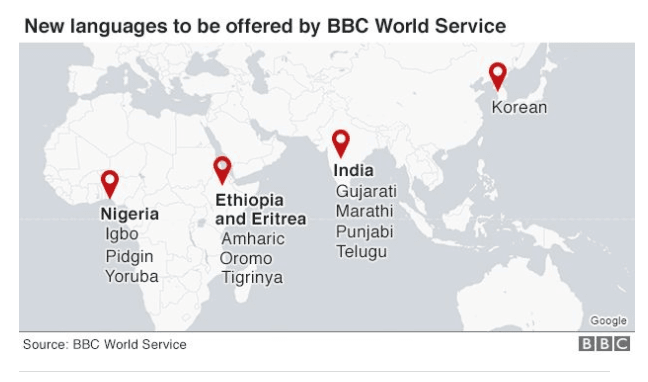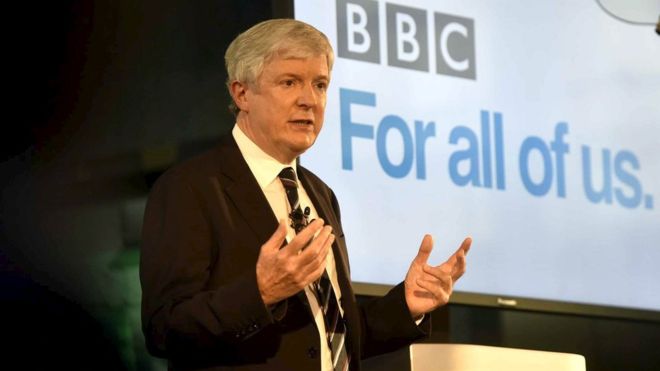BBC World Service launched a digital service in ‘Pidgin’ aimed at West and Central Africa, funded as part of a £85 million package paid for by taxpayers.
Fixating on reaching half a billion people worldwide, the state broadcaster received the funds from the government, via taxpayers, to help “build the global reach of the World Service”.
In 2010, the coalition government decided to end the annual £253 million spent on the World Service, with the BBC having to absorb the cost out of the licence fee – a mandatory tax on all television owners in the UK.
However, in 2015 then-Chancellor George Osborne partially reversed the cut in return for the BBC expanding services to North Korea, Russian speaking nations, the Middle East, and Africa.
Widely spoken in Africa, Pidgin is a mixture of English and African languages. In addition, Yoruba and Igbo will also join the current Hausa service and English output funded by British taxpayers and TV licence holders.
BBC World Service Pidgin was launched on Monday following a Twitter campaign by BBC Africa, showcasing the service’s staff in a video entitled: “We don land gidigba!” (“We have arrived!”)
One of the new team members stated: “I be international journalist.”
Another exclaimed: “I done work for the largest media organisation for dis world.”
One of the first articles published by the service was on American politics and featured the resignation of Stephen K. Bannon from the White House to return to Breitbart News. Titled Steve Bannon don resign from Trump government, the story stated: “White House chief strategist Steve Bannon don waka.”
“Mr Bannon na the brain behind the popular Donald Trump talk, ‘America First’ during im election campaign and im also be right-wing nationalist wey bi people wey fight for the right of White people for America.”
BBC Director General Tony Hall said he “warmly welcomed” what represents the service’s “biggest expansion since the 1940s”, saying: “The World Service is one of the UK’s most important cultural exports and one of our best sources of global influence. We can now further build on that.”
The government’s Strategic Defence Review claims the additional money is about “soft power” – specifically “Britain’s reputation, values and influence around the World,” the BBC news website noted.
It was only earlier this month that the BBC announced Hong Kong’s World Service would be replaced by Chinese state-run programming, as part of the Communist country’s “mainlandisation”, representing another severed link between Britain and her former dependent territory.
Last month, China celebrated 20 years since the handover of the city by dismissing a 50-year treaty that sought to protect Hong Kongese rights with Chinese President Xi Jinping taking the opportunity to issue a stern warning to protesters who have campaigned against Chinese oppression for the past two decades.



COMMENTS
Please let us know if you're having issues with commenting.